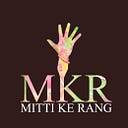Citizen engagement in democracy
“WE, the people… adopt, enact, and give to ourselves this constitution”; the opening and last sentences of the preamble to the constitution signifies the power is ultimately vested in the hands of the citizens. The Government of the people, for the people and by the people declares that India is a Sovereign Socialist Secular Democratic Republic and a welfare state. India, being the most populous democracy in the world knows the importance of citizen engagement, after all, it’s democratic. Citizen engagement is a fundamental principle of democracy. It means that at every step citizens are informed, consulted, involved, collaborated, and eventually empowered. The motive is to involve all those stakeholders in the decision making process who are going to be affected by it. It is not just about involving, but rather promising the public that their contribution will influence the decision.
Citizen Engagement is not an exclusive concept. It has been exercised in varied magnitude across the globe. It is a public consultation by enabling citizens to do more than simply vocalize an opinion — it includes their participation in the deliberation process leading to decisions. It emphasizes educating the decision-makers i.e. parliament and government about important social issues and the urgent needs of the public that must be addressed. Public participation aggrandizes citizen ownership of development processes. It also accrues the sense of citizenship and results in better implementation of development programs. The citizens collaborate from formulation to implementation of the programs and they reserve the right to reject or modify the program design even at a later stage of the program ideally.
The Government is elected by the people; hence it is responsible and liable to the people and to fulfill its responsibility the Government actively engages with the citizens while making the policies that ultimately impact them. However the public participation was very minimal earlier but after the 73rd Amendment Act, the rural public’s participation at the local level was significantly increased. To state a few examples of the recent past, the new education policy, the EIA drafts, and many such policies were open to the citizens, to read, condemn, and propose changes.
The citizens are no more just beneficiaries of government schemes or the customers of public-private partnerships. Furthermore, the concept of citizenship provides social rights, social responsibilities, and social accountability. There is now unison that citizen engagement is the building block for democratic governance because it improves the political position of marginalized or vulnerable groups, such as women, youth, and minorities that are often not taken into contemplation.
Contributed by Aakanksha Soni content writer at Mitti Ke Rang
At Mitti Ke Rang, we started with a COVID-19 community support fundraising, as an emergency response to provide a safety net to families. This will help them survive in the lockdown period. We aim to directly support these families by providing a minimum wage, through transferring the same into their accounts or partner with local NGO, Organisation, Fellow, or a Volunteer, and support them with groceries.
You can donate at:
Our Social Media:
LinkedIn — https://www.linkedin.com/in/mitti-ke-rang-mkr-81b230120/
Twitter: https://twitter.com/mitikerang?s=08
Instagram: https://www.instagram.com/mitti_ke_rang?r=nametag
Facebook: https://www.facebook.com/Mitikerang/
YouTube:
